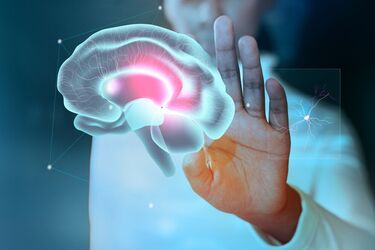Scientists sound the alarm: the brain may "dissolve" earlier than you think

A new study by scientists has revealed an important link between accelerated biological aging and changes in brain structure. Experts have found that the volume of gray matter has a direct impact on the rate of aging.
This discovery emphasizes another important role of this part of the brain, even if it has not been directly linked to cognitive abilities before. PsyPost writes about it.
In a study published in the Journal of Affective Disorders, a team of scientists led by Zhang Feng, associate dean of molecular epidemiology and bioinformatics at the Xi'an Jiaotong University Health Science Center, used modern biomarkers and neuroimaging data to analyze the effect of biological age on brain volume.
The results of the study showed that although chronological age is usually considered the main indicator of aging, it does not take into account individual differences in this process. To assess the level of biological aging, the scientists used two methods - the Klemer-Dubal index (KDM) and PhenoAge, calculated on the basis of blood biomarkers such as albumin and C-reactive protein.
The KDM and PhenoAge methods are modern scientific tools that allow you to determine the biological age of a person based on the analysis of health indicators contained in the blood. These indicators include protein levels and signs of inflammation. These methods make it possible to more accurately estimate the rate of biological aging by comparing it to chronological age and identify potential health risks. Using data from the UK Biobank database, which included information on 14,725 people, the researchers compared these indicators with the volumes of brain structures obtained by MRI.
Significant volume reductions were found in key brain regions, such as gray and white matter, hippocampus, and thalamus, in people with higher rates of biological aging. These results remained stable even after accounting for factors such as body mass index, physical activity level, and socioeconomic status.
Read also: Man discovers remains of Ice Age mastodon near his home
During the study, the researchers also found obvious demographic differences. In particular, women and younger people (under 55) showed a more pronounced association between accelerated biological aging and a decrease in brain volume. In addition, participants from lower socioeconomic groups showed significantly greater brain volume decline, leading researchers to suggest that environmental factors may exacerbate the effects of biological aging.
However, this cross-sectional study does not allow for causal inference, and its sample of predominantly white participants limits the applicability of the results to the global population, the researchers noted. Nevertheless, the results open up new perspectives for developing interventions aimed at slowing biological aging, which could help reduce the deterioration of brain health in millions of people. Early detection and biomarker-based therapies could be an important step in the fight against aging-related neurodegeneration.
According to global statistics, there is growing concern about the aging population. The World Health Organization predicts that by 2050, nearly 20% of the world's population will be over 60, increasing the need for research into conditions associated with biological aging, such as dementia.
Earlier, we told you that scientists made an incredible discovery about the probability of life on Mars.
If you want to get the latest news about the war and events in Ukraine, subscribe to our Telegram channel!
